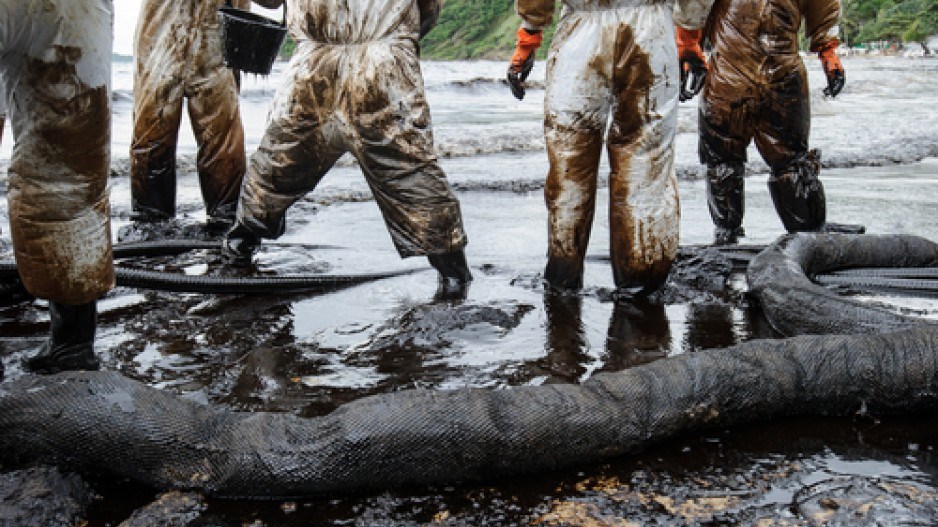Just one day after Ottawa announced new regulations for managing marine oil spills, it announced a new set of rules May 15 for land-based spills that will require pipeline operators to carry up to $1 billion in insurance to cover cleanup costs, regardless of who is at fault.
One billion dollars just happens to be what the final bill is expected to be for Enbridge Inc. (TSX:ENB) to clean up the Kalamazoo River in Michigan, which had 3 million litres of oil spill into it in 2010.
It also happens to be how much the B.C. government insisted that Enbridge carry as part of its five conditions for the Northern Gateway pipeline.
The federal government is expected to make a final decision on the $6.5 billion 1,177-kilometre pipeline from Northern Alberta to Kitimat by mid-June.
Under the new regulations, pipeline operators will not only have to carry $1 billion of liability insurance, they will also have to keep $100 million on hand for initial cleanup, in the event of a major pipeline spill.
They will also require pipeline companies to increase participation by First Nations in the planning and monitoring of pipelines as well as in cleanup operations in the event of a spill.
The new regulations were announced just a day before a pipeline rupture flooded the streets of Los Angeles with 10,000 gallons of crude.
The new regulations will not have a significant impact on the way pipeline operators in Canada already do business, said Philippe Reicher, vice president of external affairs for the Canadian Energy Pipeline Association (CEPA).
“It doesn’t really have a significant bearing on the way we operate currently because the availability of accessing that funding is something our members already have anyway,” he said.
“The members of CEPA are large, very well-capitalized companies and they have the resources to handle potential major incidents. But what the government has done is formalized it and by doing this publicly has created some more explicit expectations.
“It’s not really changing the way the industry is operating. What I think it does, though, is it provides, hopefully, reassurance to the public that Canada does have some very strong regulations.”
A spokesman for Enbridge pointed out that the $1 billion liability the federal government is now requiring was part of the B.C. government’s own conditions for oil pipelines.
Pipeline operators like Enbridge and Kinder Morgan (NYSE:KMI) – which is just now beginning the public hearing process for its TransMountain pipeline proposal – are not liable for oil spills at sea.
They are responsible for any oil spills on land, however, (including lakes and rivers) regardless of whether the spill was caused by accident, negligence, or even a purposeful act of sabotage.
“It’s always been like this anyway,” Reicher said. “Under the current regime, the pipeline company will always be responsible for the cleanup and the costs associated with it, regardless of who’s responsible for it.”




